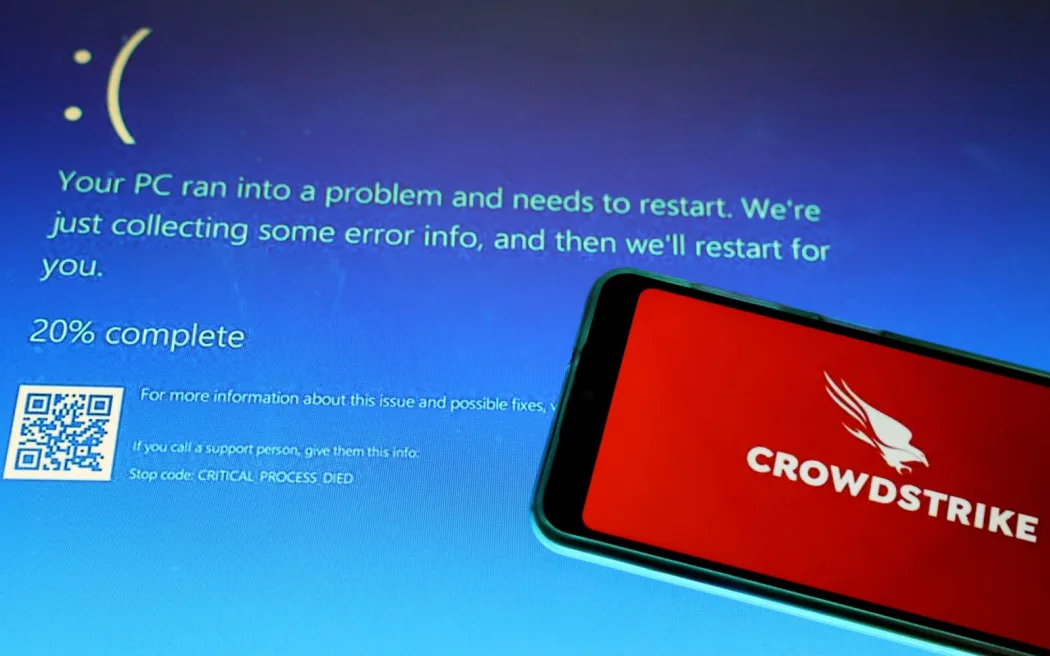The Future of Remote Work: How Cybersecurity and Digital Platforms are Shaping Global Business

From cybersecurity threats to workforce management, organizations have had to rethink how they operate in a decentralized environment. As we navigate this transformation, companies like CrowdStrike, Fiverr, S&P Global, LogMeIn, and TeamViewer are playing pivotal roles in shaping the future of remote work.
1. Cybersecurity in the Age of Remote Work: CrowdStrike’s Crucial Role
One of the most significant challenges of remote work is ensuring cybersecurity. With employees working from various locations, often on personal devices, the risk of data breaches and cyber-attacks has skyrocketed. CrowdStrike, a leader in cloud-delivered cybersecurity, has been at the forefront of defending against these threats. The company’s advanced endpoint protection and threat intelligence capabilities allow businesses to detect, prevent, and respond to cyber incidents in real time.
CrowdStrike’s success lies in its ability to provide scalable, cloud-native solutions that are perfect for a distributed workforce. Whether it’s safeguarding corporate assets or ensuring compliance with regulatory requirements, cybersecurity remains a top priority for companies with remote teams. The rise in phishing attacks, ransomware, and other sophisticated threats has made platforms like CrowdStrike indispensable for modern businesses.
2. Fiverr: The Backbone of the Freelance Economy
As remote work becomes the norm, companies are increasingly turning to freelancers and contractors to meet their business needs. Fiverr, a global marketplace for freelance services, has become a go-to platform for businesses looking to hire talent across various fields—ranging from graphic design and content creation to digital marketing and software development.
What makes Fiverr particularly relevant to the remote work discussion is its ability to facilitate on-demand talent acquisition. Businesses no longer need to rely solely on full-time employees to get work done. With platforms like Fiverr, companies can scale their workforce up or down based on demand, all while tapping into a global pool of freelancers. This shift towards freelance work also empowers individuals to work from anywhere, further breaking down the traditional office structure.
3. S&P Global: Analyzing Remote Work’s Impact on Global Markets
While the operational aspects of remote work get most of the attention, understanding the broader economic and financial impact is crucial. This is where S&P Global, a leader in financial information and analytics, comes into play. The company provides essential insights into how remote work is influencing everything from real estate markets to corporate earnings.
For instance, S&P Global has reported significant changes in commercial real estate as companies opt for smaller office spaces or adopt hybrid working models. In addition, S&P’s market intelligence tools help businesses assess how their industries are evolving in response to new work dynamics. Understanding these trends allows businesses to make informed decisions and adapt to the changing economic landscape.
4. LogMeIn and TeamViewer: Essential Tools for Remote Collaboration
The success of remote work hinges not only on cybersecurity and staffing but also on the ability to collaborate effectively. Software like LogMeIn and TeamViewer has become indispensable for remote IT management, troubleshooting, and communication.
LogMeIn offers a suite of tools designed to enable remote access, file sharing, and collaboration across teams, making it easier for businesses to stay connected no matter where their employees are. Its video conferencing and cloud-based solutions are essential for maintaining productivity in a remote-first world.
On the other hand, TeamViewer is known for its remote desktop and IT support services. In a remote work setting, the ability to offer quick technical support and troubleshoot issues without needing to be physically present is invaluable. Both LogMeIn and TeamViewer have been instrumental in ensuring business continuity during the pandemic and beyond.
5. The Global Economic Shift: Remote Work’s Broader Implications
The integration of companies like CrowdStrike, Fiverr, S&P Global, LogMeIn, and TeamViewer into remote work environments is not just a matter of convenience; it represents a fundamental shift in how businesses operate globally. Remote work has allowed companies to expand their talent pools beyond geographical limitations, cut operational costs, and introduce flexible working models that many employees prefer.
From a macroeconomic perspective, the rise of remote work has implications for everything from real estate markets to national economies. Countries with robust digital infrastructures are likely to benefit as more businesses adopt remote work, creating new opportunities for growth in technology and cybersecurity sectors.
Conclusion: A New Era of Work
As we move forward, it’s clear that remote work is more than just a temporary adjustment—it’s the future of how we do business. Companies like CrowdStrike, Fiverr, S&P Global, LogMeIn, and TeamViewer are at the heart of this transformation, offering solutions that address the challenges of remote work while also driving innovation in their respective fields.
By embracing these tools and services, businesses can not only survive in a remote-first world but thrive, leading to greater efficiency, security, and flexibility. As we continue to navigate this new era, the collaboration between cybersecurity, freelance platforms, data analytics, and communication tools will define the success of businesses in the global economy.




